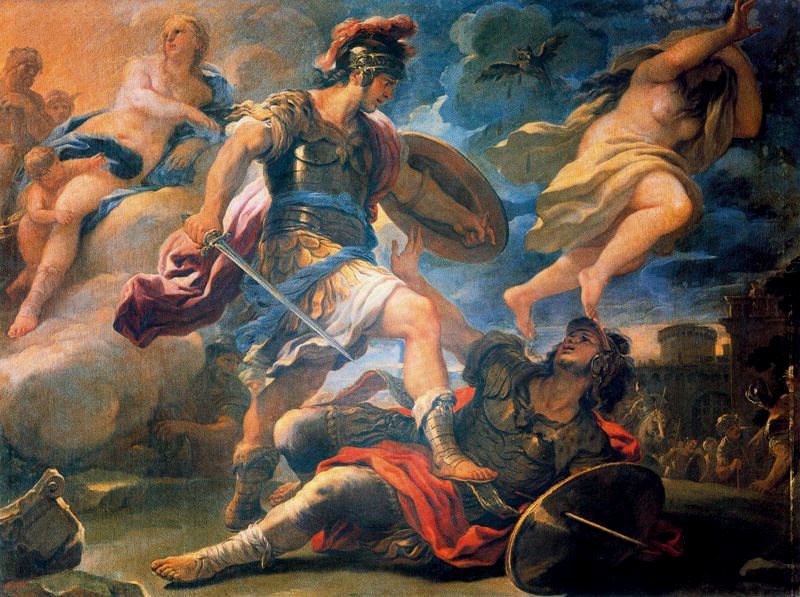
The following except is from the book Inter–Views, by James Hillman. – PW
_______________
Feminism and femininity is a desperate topic. I steer clear of it. Once you see the whole world in terms of gender you close your mind in a set of blinders, caught in a pair of opposites, and you lose the particular person, like you, in front of me, who happens to be of the female gender. People, you, are far more than female or male. I lose you, the person there, if I reduce you to a supposed feminine essence. Maybe if we used the full vocabulary of psychological traits that were laid out in 1935 by two Harvard psychologists — there were some nineteen thousand traits, that described a personality. Only some of those words are gender words, having to do with external gender characteristics, psychosexual characteristics, sociogender characteristics…
There may be only a few hundred such gendered words out of thousands. Besides that, there are thousands of things about you that have nothing to do with gender. If I put you into your gender, I have made a racist move. It’s like putting you into being Italian or putting you into being a certain age or a certain class. I have lost you in a sociological category. So I don’t want to answer any questions about the feminine, feminism, and so on. I will talk about certain structures of consciousness that have been called feminine and what happens when they are called feminine; we can talk about hysteria or about Dionysus, because Dionysus was considered a Lord or God of women, and the way that works. But I don’t want to speak of “the feminine” in a literal sense. These structures of consciousness that we call feminine are in men and are in women and are in neither. They are structures of consciousness. Archetypal patterns, that appear again and again. This touches only tangentially the social problems of women – not being paid equal wages, for instance. That’s a basic social economic problem. It should and must be dealt with. Or certain laws about property. Or inheritance laws and women…
But let’s not get confused between dealing with those things and defining some kind of consciousness as female or feminine. As my wife says in her paper [The Dogma of Gender], either feminists say there are no gender differences and I can climb a telephone pole and shoot a gun and drive a truck just the same as any man (they’re assuming already that driving a truck or climbing a telephone pole is male; it’s already set up that way), or feminists take the other position and say, the feminine is different. It belongs to the moon, it has to do with instinct and nature and womb and menstruation and breasts and a mode of being that a man doesn’t understand. They identify with a particular archetypal pattern, a lunar constellation, say, and define that as “the feminine.” In both of those situations the individuality of the woman is trapped in being either no feminine or all-feminine; and both the ideas of what’s feminine are stereotypes.
Psyche, you see, tends to ignore that gender question, curiously enough. Just like the psyche tends to ignore a lot of the questions that the ego thinks are important and identifies with. The psyche doesn’t really know in its dream whether you’re rich or poor. It doesn’t know whether you went to grade school or to college. It doesn’t know whether you’re a man or a woman. It doesn’t know – when I say it doesn’t know this, I mean the material it presents in a dream ignores it.
I’m handed a written dream. I can’t tell if that dream is dreamed by a man or a woman necessarily. I can’t tell if that dream is dreamed by someone twenty or sixty or eighty. I don’t know if the dreamer is a city person or a country person, because a city person can have extraordinary dreams about landscapes and rivers. And a country person can be in the middle of a city, because the city is an eternal image and the country is an eternal image, not a sociological or a geographical place only. One can be anywhere in one’s dreams. I can be in a Greek landscape or I can be in a Scandinavian forest and I may never have been either in Greece or Scandinavia. So the psyche tends to ignore the categories that social psychology organizes things into. It’s like married or unmarried, mother or not mother, and so on. In dreams men breast feed, and women have penises. Why not?
You can always take a dream and reduce it to sociological categories; but the dream as phenomenon seems not to care about that. Just like it doesn’t seem to care about life and death that much. You can have death dreams when you are young and right in the middle of life – a whole series of dreams which seem to be quite clear that you are dying of cancer or that you will die on a certain date. I had such dreams. I was supposed to die on a certain date, and it was as real as could be. On the other hand, I’ve worked with people who have died in analysis, and the dreams never made it clear when they would die or even if they would die. Maybe I was too dense to see…. Anyway, the idea that dreams have a sexual origin, of course, would then say dreams have a gender origin, and that men’s dreams must be different from women’s dreams because their sexual organs are different. And their chromosomes are different and so on. A dream — I’m sitting in my home on the edge of my bed, and Marybelle in a light blue dress comes in with a bunch of tulips, and I put my arm around her. End of dream. Whose dream is that? A man’s dream or a woman’s dream? If it’s a woman’s dream, Mary Bell is still the child from childhood bringing into my reception a chance to meet this child again. And the same thing is true for a man’s dream. You can’t immediately say the man has an infantile sexuality. But who hasn’t – thank God! But what would deprive a woman of having an infantile sexuality, too, with Marybelle? No reason – unless you start off with prejudices. So the sexual origin is not only theoretically questionable, but it leads to gender thinking. It gives you two problems at once! And it prevents you from just being with that girl who’s just walked in the room in the dream. Because you’re starting off by categorising it somewhere. The psyche ignores all that.

